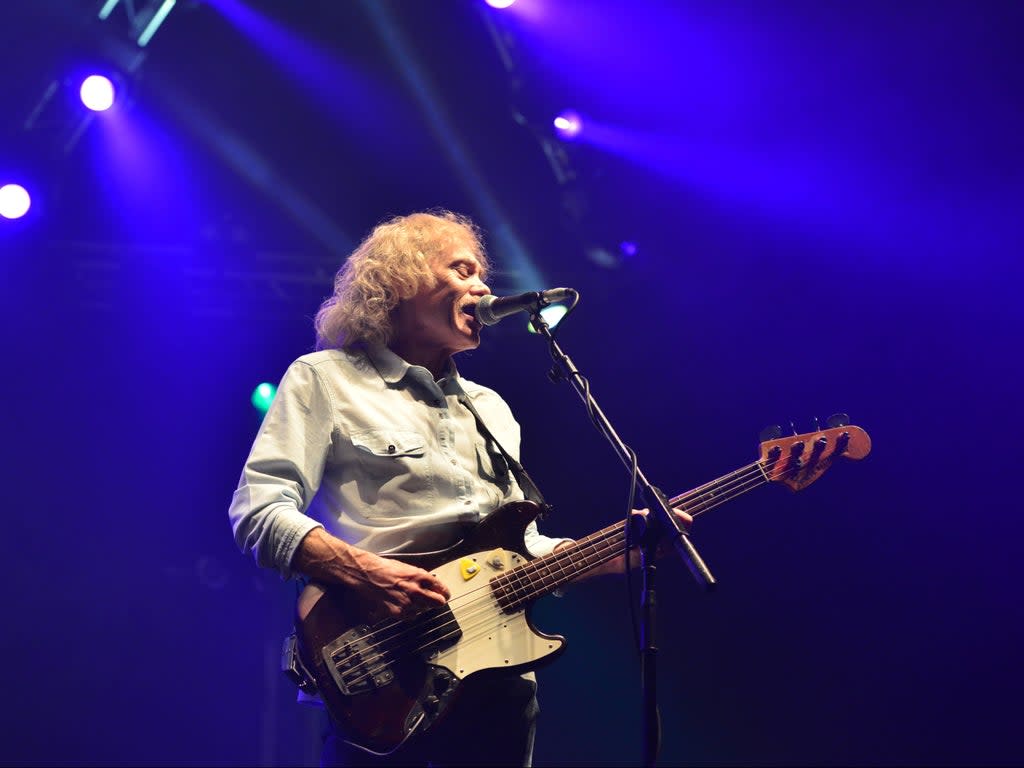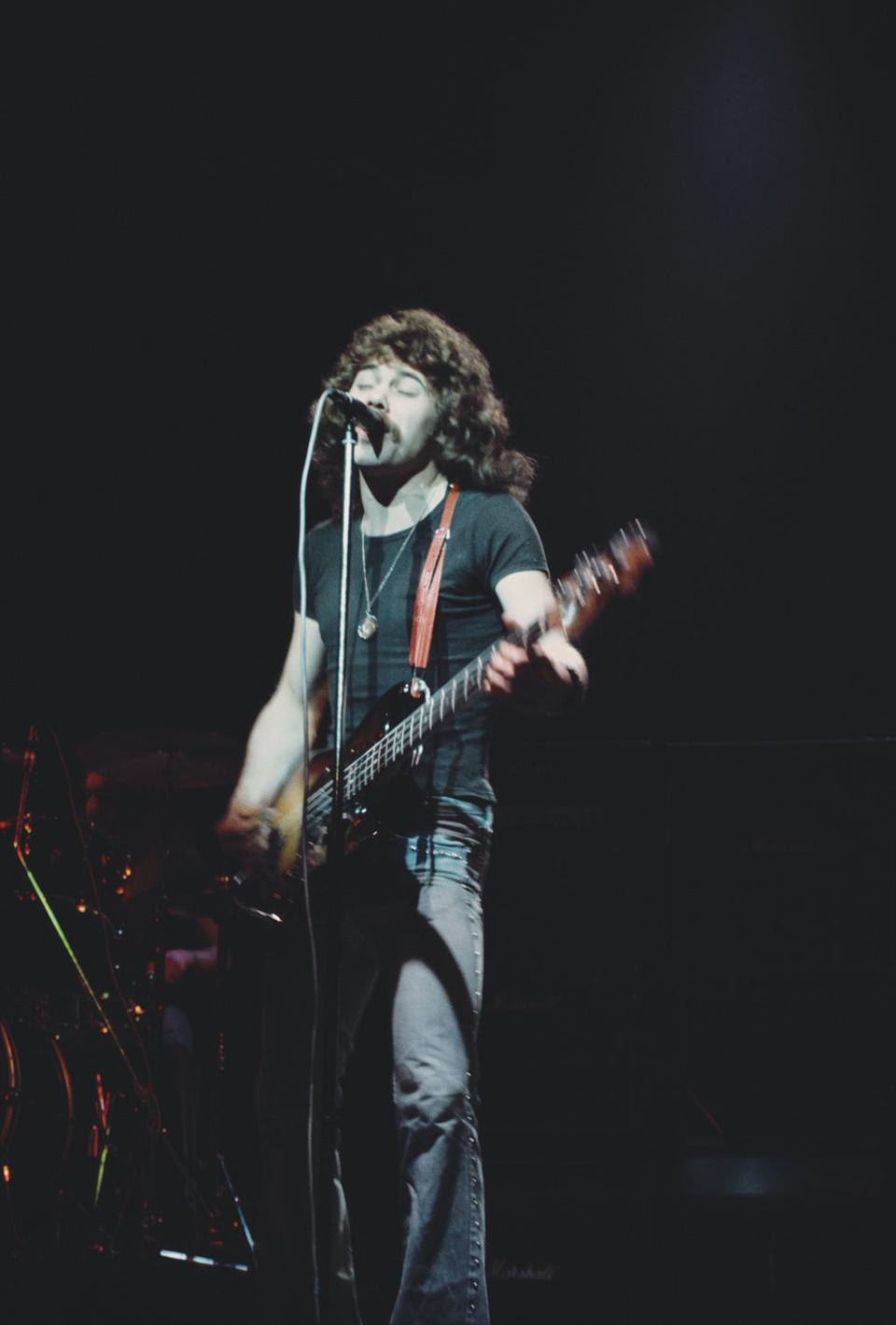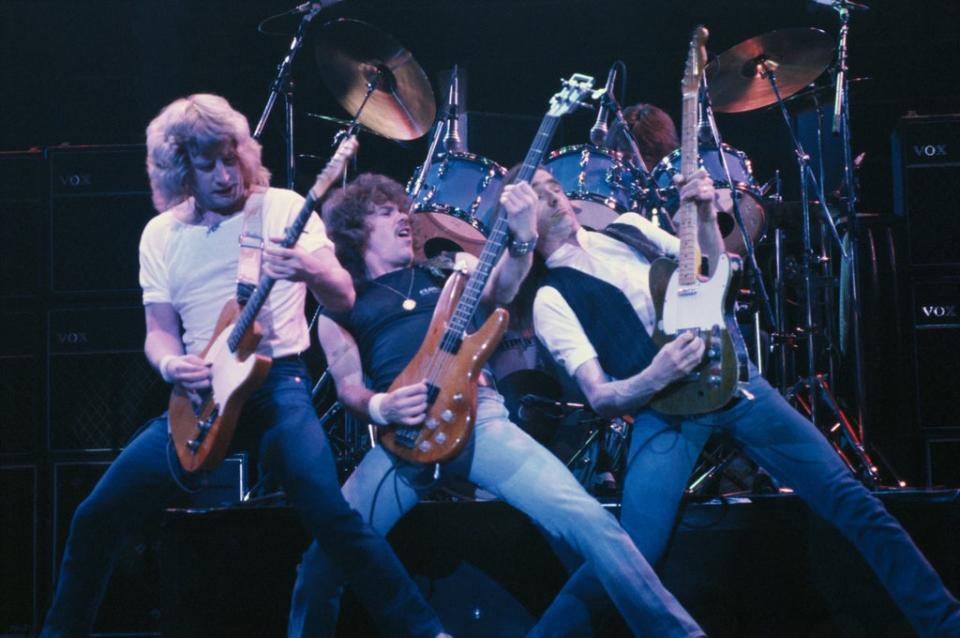Alan Lancaster: Status Quo bassist who helped change rock’n’roll

Alan Lancaster was a founding member of Status Quo, one of the country’s best-selling rock bands and the act with more hit singles than any other in UK chart history.
Lancaster, who has died aged 72, was Quo's bass player from 1962 to 1985. He brought to the band its distinctive driving rhythm and penned or co-wrote several of its hits, including “Ol’ Rag Blues” which reached the top ten in 1983. He played on 16 of Status Quo’s studio albums, from Picturesque Matchstickable Messages from the Status Quo (1968) through to Back to Back (1983).
Alan Lancaster was born in Peckham, south London, in 1949. He formed his first band, The Scorpions, with his friend Francis Rossi while at Sedgehill Comprehensive School in Lewisham. That group went on to become The Spectres, with John Coghlan on drums, and by 1967 had evolved into Status Quo, in their classic original line-up with Lancaster (bass and vocals), Rossi (rhythm guitar and vocals), Roy Lyons (organ) Coghlan (drums). Rick Parfitt joined shortly afterwards to make a five-piece.
The band’s first hit single was the psychedelic-sounding Pictures Of Matchstick Men, which reached number seven in the UK charts. The song, inspired by figures in the paintings of LS Lowry, was written by Rossi, who recalled: “We did Top of the Pops for the first time in 1968 when you used a backing track and did a live vocal. It was just a thrill to be in there. You knew the programme was the best place to get your record aired.”
The band went on to appear a record 87 times on the programme and had toured extensively worldwide throughout the late Sixties and Seventies. In all, 57 of their singles made it into the UK Top 40, and 22 of those into the top 10, with just one song, “Down Down”, reaching the coveted number one position, in December 1974.

Status Quo were the openers at the memorable Live Aid concert of 1985, beginning their performance fittingly with the classic hit “Rocking All Over the World”. Lancaster’s bandmate, Parfitt, said: “I will never forget the feeling as we walked out onto that stage – it was just magical. It was real hairs-standing-up-on-the-back-of-the-neck stuff. When you walk out and you’ve got 80,000-odd people stretching into the distance... it was just breathtaking.”
But despite their overwhelming success, friction between individual band members – fuelled by drug use – would lead to a dramatic falling-out. Lancaster said in a later interview: “It was unthinkable that one of us could leave the band, we’d just reached the top of our tree. John just got ousted by Francis... the next day John Coughlan was on the plane back home and Pete Kircher came in to substitute him and we made the worst album we’ve ever made.” Lancaster would go on to leave the band shortly afterwards.

Following his departure from Status Quo, Lancaster played with Australian bands The Party Boys and the Bombers. He had lived with multiple sclerosis for many years but had still been able to take part in the band’s 2013-14 Frantic Four Reunion Tour, bringing the entire original line-up together again for the first time since 1981. Quo manager, Simon Porter, said: “Although Alan was not in the best of health even then, he got through the tours with determination and grit and was a pleasure to work with.”
Rossi said in tribute: “I am so sorry to hear of Alan’s passing. We were friends and colleagues for many years and achieved fantastic success together as the Frantic Four alongside Rick Parfitt and John Coghlan. Alan was an integral part of the sound and the enormous success of Status Quo during the Sixties and Seventies. Although it is well documented that we were estranged in recent years, I will always have very fond memories of our early days together, and my condolences go to Dayle and Alan’s family.”
Lancaster was married to Dayle Thurbon since 1978. The couple had met in 1973 during the band’s tour of Australia, where he chose to live in later life. He is survived by Dayle and their three children.
Alan Lancaster, musician, born 7 February 1949, died 26 September 2021
Read More
Peter Green: Sixties guitar hero and co-founder of Fleetwood Mac

 Yahoo News
Yahoo News 
